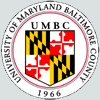| |||||||||||||||||||
Tips:  Range on the Protein: Protein ID Protein Position Domain Position: 
|
|---|
Weblogos are Copyright (c) 2002 Regents of the University of California
| DMDM_info@umbc.edu | 1000 Hilltop Circle, Baltimore, MD 21250 | Department of Biological Sciences | Phone: 410-455-2258 |




 MogA_MoaB family. Members of this family are involved in biosynthesis of the molybdenum cofactor (MoCF) an essential cofactor of a diverse group of redox enzymes. MoCF biosynthesis is an evolutionarily conserved pathway present in eubacteria, archaea, and eukaryotes. MoCF contains a tricyclic pyranopterin, termed molybdopterin (MPT). MogA, together with MoeA, is responsible for the metal incorporation into MPT, the third step in MoCF biosynthesis. The plant homolog Cnx1 is a MoeA-MogA fusion protein. The mammalian homolog gephyrin is a MogA-MoeA fusion protein, that plays a critical role in postsynaptic anchoring of inhibitory glycine receptors and major GABAa receptor subtypes. In contrast, MoaB shows high similarity to MogA, but little is known about its physiological role. All well studied members of this family form highly stable trimers.
MogA_MoaB family. Members of this family are involved in biosynthesis of the molybdenum cofactor (MoCF) an essential cofactor of a diverse group of redox enzymes. MoCF biosynthesis is an evolutionarily conserved pathway present in eubacteria, archaea, and eukaryotes. MoCF contains a tricyclic pyranopterin, termed molybdopterin (MPT). MogA, together with MoeA, is responsible for the metal incorporation into MPT, the third step in MoCF biosynthesis. The plant homolog Cnx1 is a MoeA-MogA fusion protein. The mammalian homolog gephyrin is a MogA-MoeA fusion protein, that plays a critical role in postsynaptic anchoring of inhibitory glycine receptors and major GABAa receptor subtypes. In contrast, MoaB shows high similarity to MogA, but little is known about its physiological role. All well studied members of this family form highly stable trimers. No pairwise interactions are available for this conserved domain.
No pairwise interactions are available for this conserved domain.










